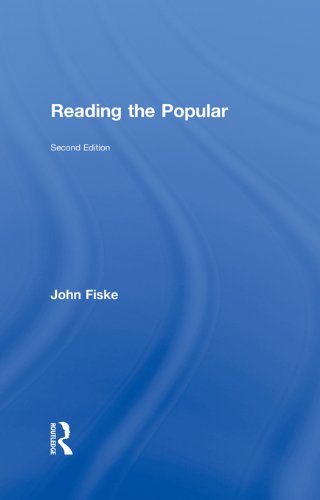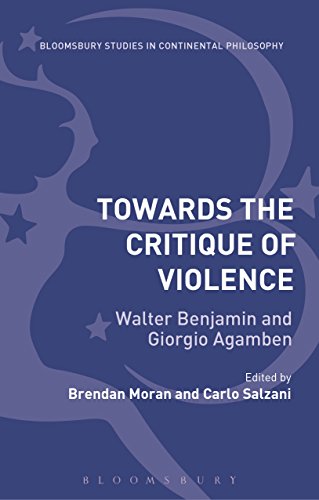भारत में प्रसारण से संबंधित समिति तथा आयोग : एक चर्चा (भाग -2)
पहला प्रेस आयोग (1952-54)
23सितंबर 1952 को सूचना व प्रसारण मन्त्रालय ने पहले प्रेस आयोग की स्थापना की । जष्टिस जेएस राजध्यक्ष इसके अध्यक्ष बनाए गए ।
आयोग के सूझाव
- प्रेस की स्वतंत्रता की रक्षा करने के साथ पत्रकारित के उच्च मान को बनाया रखा जाए । प्रेस काउंसिल की स्थापना हो । इसको स्वीकार कर लिया गया और 4जुलाई 1966 को प्रेस काउंसिल की स्थापना हुई । इसी साल 16 नवंबर से प्रेस काउंसिल ने काम भी करना शुरू कर दिया । इसीलिए हरसाल 16नवंबर को राष्ट्रीय प्रेस दिवस के रूप में मनाया जाता है ।
- रजिस्ट्रार आफ न्यूज पेपर आफ इंडिया (आरएनआई) की नियुक्ति हो । इस सूझाव को भी ग्रहण कर लिया गया तथा जुलाई 1956 को आरएनआई की नियुक्ति होने लगी ।
- सरकार और प्रेस के बीच मैत्रीपूर्ण संबंधों की स्थापना ने लिए एक सलाहकार कमेटी का गठन हो । इसे स्वीकार कर लिया गया । 22सितंबर 1962 को एक सलाहकार कमेटी का गठन किया गया. ।
- आयोग के सूझाव के आनुसार श्रमजीवी पत्रकार अधिनियम को भी स्वीकार कर लिया गया और 1955 में इसे लागू किया गया ।
- न्यूज एंजेसी तथा अखबारों की आर्थिक हालातों की जांच के लिए फेक्ट फाइंडिंग कमेटी की स्थापना के सूझाव पर 14जनवरी 1975 को इसकी स्थापना हुई ।
दूसरा प्रेस आयोग( 1978)
29मई 1978 को भारत सरकार ने दूसरे प्रेस आयोग की स्थापना की । जष्टिस पीके गोस्वामी इसके अध्यक्ष बनाए गए हालांकि 14जनवरी 1980 को नई सरकार क्षमता में आने के बाद गोस्वामी और उनकी टीम ने अपने पदों से इस्तीफा दे दिया । जष्टिस केके मैथ्यू की अध्यक्षता में 21 अप्रैल 1980 को फिर से प्रेस आयोग की स्थापना हुई ।
आयोग के सूझाव
- सरकार और प्रेस के बीच मैत्रीपूर्ण संबंधों की स्थापना के लिए कोशिश की जाए ।
- छोटे तथा मध्यम अखबारों के विकाश के लिए न्यूज पेपर डेवलापमेंट कमिशन की स्थापना होनी चाहिए ।
- अखबार उद्योग व्यावसायिक हित हेतु स्थापित उद्योगों से अलग हो ।
-अखबारों तथा पत्रिकाओं में किसी भी तरह की भविष्यवाणी प्रकाशित न हो ।
-पत्र सूचना कार्यालय का पुनर्गठन हो ।
पहला प्रेस आयोग (1952-54)
23सितंबर 1952 को सूचना व प्रसारण मन्त्रालय ने पहले प्रेस आयोग की स्थापना की । जष्टिस जेएस राजध्यक्ष इसके अध्यक्ष बनाए गए ।
आयोग के सूझाव
- प्रेस की स्वतंत्रता की रक्षा करने के साथ पत्रकारित के उच्च मान को बनाया रखा जाए । प्रेस काउंसिल की स्थापना हो । इसको स्वीकार कर लिया गया और 4जुलाई 1966 को प्रेस काउंसिल की स्थापना हुई । इसी साल 16 नवंबर से प्रेस काउंसिल ने काम भी करना शुरू कर दिया । इसीलिए हरसाल 16नवंबर को राष्ट्रीय प्रेस दिवस के रूप में मनाया जाता है ।
- रजिस्ट्रार आफ न्यूज पेपर आफ इंडिया (आरएनआई) की नियुक्ति हो । इस सूझाव को भी ग्रहण कर लिया गया तथा जुलाई 1956 को आरएनआई की नियुक्ति होने लगी ।
- सरकार और प्रेस के बीच मैत्रीपूर्ण संबंधों की स्थापना ने लिए एक सलाहकार कमेटी का गठन हो । इसे स्वीकार कर लिया गया । 22सितंबर 1962 को एक सलाहकार कमेटी का गठन किया गया. ।
- आयोग के सूझाव के आनुसार श्रमजीवी पत्रकार अधिनियम को भी स्वीकार कर लिया गया और 1955 में इसे लागू किया गया ।
- न्यूज एंजेसी तथा अखबारों की आर्थिक हालातों की जांच के लिए फेक्ट फाइंडिंग कमेटी की स्थापना के सूझाव पर 14जनवरी 1975 को इसकी स्थापना हुई ।
दूसरा प्रेस आयोग( 1978)
29मई 1978 को भारत सरकार ने दूसरे प्रेस आयोग की स्थापना की । जष्टिस पीके गोस्वामी इसके अध्यक्ष बनाए गए हालांकि 14जनवरी 1980 को नई सरकार क्षमता में आने के बाद गोस्वामी और उनकी टीम ने अपने पदों से इस्तीफा दे दिया । जष्टिस केके मैथ्यू की अध्यक्षता में 21 अप्रैल 1980 को फिर से प्रेस आयोग की स्थापना हुई ।
आयोग के सूझाव
- सरकार और प्रेस के बीच मैत्रीपूर्ण संबंधों की स्थापना के लिए कोशिश की जाए ।
- छोटे तथा मध्यम अखबारों के विकाश के लिए न्यूज पेपर डेवलापमेंट कमिशन की स्थापना होनी चाहिए ।
- अखबार उद्योग व्यावसायिक हित हेतु स्थापित उद्योगों से अलग हो ।
-अखबारों तथा पत्रिकाओं में किसी भी तरह की भविष्यवाणी प्रकाशित न हो ।
-पत्र सूचना कार्यालय का पुनर्गठन हो ।
 |
| Read My Latest Women's Fiction "VO LADKI" |
































